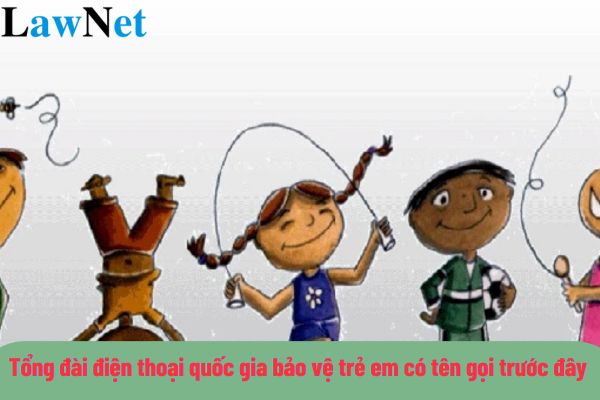What is the former name of the national child protection hotline in Vietnam? At what age can preschool children in Vietnam attend school?
What is the former name of the national child protection hotline in Vietnam?
The National Child Protection Hotline, with the familiar phone number 111, has now become a well-known helpline that helps protect children from all risks of harm. However, few people know that before this short and memorable phone number, the hotline had a different name.
“The Counseling and Support Hotline for Children - The Magic Number 18001567” was the first name of this hotline. The phone number 18001567 was chosen for its significance as a “magic number,” bringing hope and assistance to children in distress. Under this name, the hotline has been in operation since 2004, becoming an important channel for children and the public to share issues related to children, especially cases of abuse and violence.
*Please refer to more information below
What is the former name of the national child protection hotline in Vietnam?
Why was the name and phone number changed?
The change to the name and phone number to "National Child Protection Hotline - 111" in 2016 aimed to:
Simplify: The number 111 is short and easy to remember, making it easier for the public to recall and dial when needed.
Enhance urgency: The number 111 was chosen to be similar to other emergency numbers like 113 (police), 114 (fire department), helping raise public awareness of the urgency of child-related issues.
Improve efficiency: The new name and phone number change contributed to enhancing the hotline’s efficiency, attracting more community interest.
Role of the 111 Hotline:
Information reception: The hotline receives information, reports about acts of abuse, violence, abandonment of children.
Support advisory: Provide legal and psychological counseling for children, families, and communities on child-related issues.
Coordinate resolution: Collaborate with relevant authorities to resolve child-related cases promptly and effectively.
Raise awareness: Propagate and disseminate knowledge on child protection to the community. || --- |
*Note: Information is for reference only./.

What is the former name of the national child protection hotline in Vietnam? At what age can preschool children in Vietnam attend school? (Image from the Internet)
At what age can preschool children in Vietnam attend school?
According to Article 26 of the Education Law 2019 regarding preschool education institutions:
Preschool Education Institutions
Preschool education institutions include:
1. Nursery schools and independent nursery groups accept children from 3 months to 3 years old;
2. Kindergartens and independent kindergarten classes accept children from 3 to 6 years old;
3. Preschools and independent preschool classes are educational institutions combining nursery and kindergartens, accepting children from 3 months to 6 years old.
Simultaneously, the age of preschool children is also regulated in Article 32 of the Charter of Preschools issued with Circular 52/2020/TT-BGDDT as follows:
Age and Health of Preschool Children
1. Children from 3 months to 6 years old are admitted to preschools.
2. Children with disabilities can enroll at an age higher than the common regulation of 3 years.
Thus, preschool children aged from 3 months to 6 years will be allowed to attend school.
Note: Children with disabilities can enroll at an age higher than the common regulation of 3 years.
Do preschool children in Vietnam have to undergo health examination at the beginning of the year?
Based on Article 9 of the Joint Circular 13/2016/TTLT-BYT-BGDĐT, schools are responsible for organizing activities to manage, protect, and care for the health of preschool children studying at school as follows:
- Conduct health examination at the beginning of the school year to assess nutritional and health status: measure height, weight for children under 36 months; measure height, weight, blood pressure, heart rate, vision for students from 36 months and older.
- Measure height, weight, record growth charts, monitor physical development for children under 24 months old monthly and for children from 24 months to 6 years old quarterly; track body mass index (BMI) at least twice per school year to advise on proper nutrition and physical activity for general school students.
- Regularly monitor students' health, detect reduced vision, spinal curvature, oral diseases, mental health disorders, and other illnesses to handle, refer to medical facilities as regulated, and apply appropriate learning and training policies in accordance with health status.
- Coordinate with qualified health facilities to organize specialized medical examinations and treatments for students.
- Initially provide first aid and emergency care as per current Ministry of Health regulations.
- Advise students, teachers, parents or guardians on issues related to students' illness, physical and mental development; instruct students on self-care for health; in case of students with disabilities in the school, provide advice and support for their integration.
- Guide the organization of school meals ensuring reasonable nutrition, a diverse food selection, suitable for target groups and age for full-day and half-day boarding schools.
- Cooperate with local healthcare facilities in organizing vaccination campaigns for students.
- Provide periodical health status updates at least once per school year and when necessary to parents or guardians of students. School health staff assess students' health status at the end of each educational level to serve as a basis for health monitoring at the next level.
- Establish and record in health examination books, students' health monitoring books, and comprehensive health monitoring records for students.
- Regularly inspect and supervise learning conditions, school hygiene, food safety, water supply, and handwashing soap. Proactively implement hygiene prevention measures and policies as regulated in Circular 46/2010/TT-BYT and other guidelines from health authorities.
- Organize the implementation of health programs, hygiene promotion campaigns, physical activity promotion, reasonable nutrition, build a smoke-free environment, and prohibit alcohol and addictive substances.
Thus, according to the above regulations, preschool children will undergo health examination at the beginning of the school year to assess their nutritional and health status.

